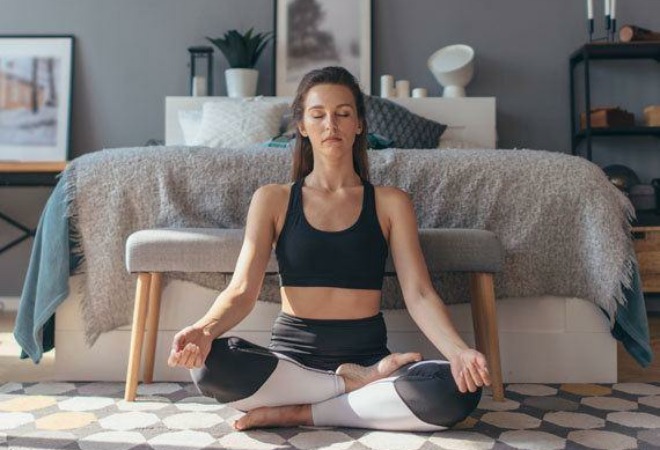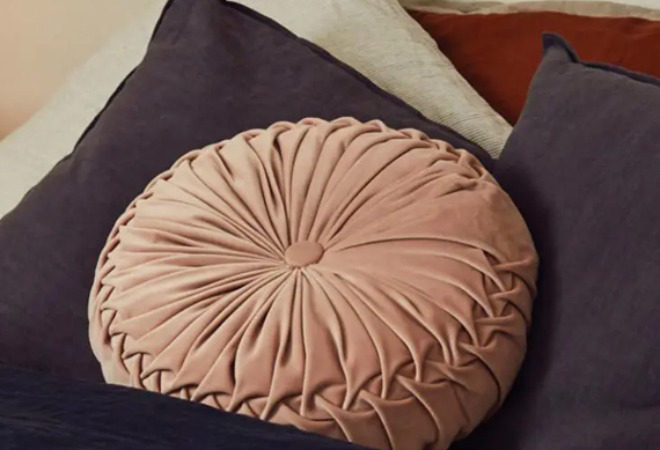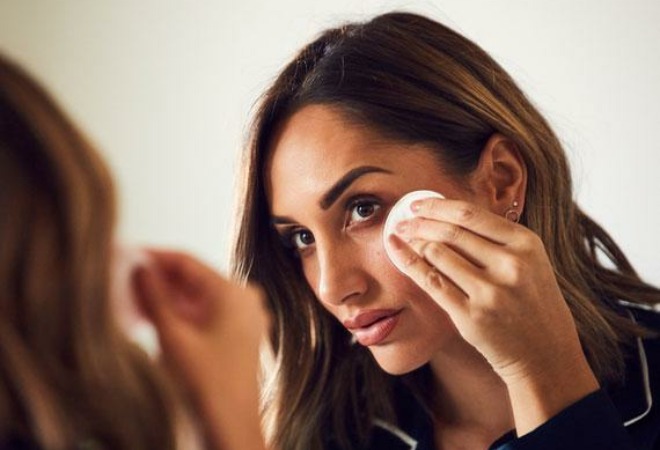To function at our best we need sleep. Getting a good night’s rest is essential for our health and well-being. Nutritionist Danijela Unkovich of ‘Healthy Always’ shares her sleep health tips for getting a great night’s rest.
HOW DOES SLEEP AFFECT YOUR HEALTH?
It doesn’t matter who we are, what we do, or where we live, all of us are require sleep. The National Sleep Foundation recommends that adults aim for 7–9 hours of sleep a night*. While there will be times in our life where our sleep is compromised, improving sleep where possible will always pay dividends to our health how we feel the following day.

YOUR BEDROOM ENVIRONMENT AND SLEEP HEALTH
To encourage a good night’s sleep, your bedroom environment should be your sanctuary, conducive to rest rather than a place that distracts from it. Find some more things to consider below to ensure you sleep well and stay well.
TEMPERATURE
According to research, the temperature range of 16-19 degrees is ideal for drifting off to sleep*. Try the following techniques to help keep within this range promote healthy sleep habits:
- Dressing accordingly – light breathable cotton pyjamas are ideal for summer and something heavier for winter
- Use heavier bedding for winter and lighter sheets for summer
A QUALITY MATTRESS AND SLEEP HEALTH
Considering the amount of time we spend on our bed and its impact on our sleep quality (which then affects our health), it really is the ultimate investment – and it’s a personal decision around what comfort level, feel and size is right for each of us. When a mattress lacks comfort and support, or we don’t have enough space, this can encourage a poor sleeping posture and can be the difference between a restful versus a restless night sleep.
THE IMPACT OF LIGHT ON SLEEP
The night is synonymous with sleep and there’s biological reasoning for this – light suppresses melatonin production, a hormone that encourages sleep.
- In preparation for bed, minimise your exposure to bright lights (especially those backlighting our technology eg, televisions, mobiles, laptops and tablets)
- Opt for lamps or relaxing bedroom candles when winding down before bed
- To avoid waking from the morning sun, trial an eye mask or consider blackout curtains
MINIMISE TECHNOLOGY FOR HEALTHY SLEEP HABITS
We’re in the age of smartphone use and 24/7 accessibility – much to our detriment of sleep. With all its benefits, technology is a double-edge for sleep – it’s mentally stimulating and our brightly lit devices can impact the release of our sleep-inducing hormone. Just like our technological devices need to recharge their batteries, so do we.
- Keep the bedroom a strict work-free zone and ideally tech-free (as much as possible)
- Set a digital curfew and ‘power-down’ for the day along with your technological devices – aim for as much time as you can, but a minimum of 30 minutes to one hour before bed
- If you use your phone as an alarm clock, always put it on airplane mode, or go for a good old-fashioned alarm clock! lit devices can impact the release of our sleep-inducing hormone. Just like our technological devices need to recharge their batteries, so do we.
RELAXATION
When there’s a lot on our plate, it can be difficult not to take thoughts, pressures and our to-do lists to bed. If you’re dealing with pressure or stress that may be impacting your sleep, try carving out time before bed to help calm, support and relax.
- As much as possible keep your bedroom as a place of rest, relaxation or intimacy
- To help unwind consider a relaxing activity before bed, like stretching, reading a chapter of your favourite book, organising yourself for the next day, having a cup of your favourite relaxing tea, or doing some deep belly breathing
- Or try some mental decluttering, like journaling or chatting to someone you trust about how you’re feeling
CREATING A HEALTHY BEDTIME ROUTINE
Our sleep hygiene is any habit or practice we have in place that helps support a restful night’s sleep. One of the simplest ways we can improve our sleep hygiene is to put a bedtime routine in place that works with our lifestyle – a commitment to a bedtime routine can make a huge difference to us drifting off at night. Here are some tips for creating a bedtime routine:
- Be mindful of your natural body clock, try not to ignore tiredness by delaying sleep and don’t linger in bed longer than you feel you need to
- Avoid stimulating drinks that contain caffeine, like coffee or black teas, close to bedtime; if you’re sensitive to caffeine, trial not having a caffeinated beverage after midday, instead wind down in the evening with a relaxing herbal beverage, such as camomile
- Adjust your bedroom to ensure the light, temperature and noise levels are comfortable for you – this may occasionally require an eye mask, earplugs or a fan
- Do a relaxing activity to help you unwind – read a favourite book, drink herbal tea, do some stretching or mindful breathing
- Wind back your sheets, plump your pillow and hop into that inviting bed!
* National Sleep Foundation’s sleep time duration recommendations: methodology and results summary. Hirshkowitz, Max et al. Sleep Health: Journal of the National Sleep Foundation, Volume 1 , Issue 1 , 40 – 43
* Onen SH, Onen F, Bailly D, Parquet P. Prevention and treatment of sleep disorders through regulation of sleeping habits. Presse Med.1994; Mar 12; 23(10): 485-9.




